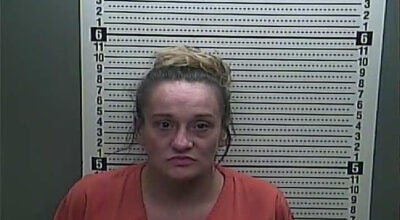Chamber hears Crime Victims Compensation information
Published 3:28 pm Tuesday, January 18, 2022

- Raymond Shields speaks to the Harlan County Chamber of Commerce during a recent meeting/Photo by Joe Asher
|
Getting your Trinity Audio player ready...
|
The Harlan County Chamber of Commerce hosted a guest speaker from the Crime Victims Compensation Board (CVCB) during the Chamber’s January meeting.
Chamber member Anne Hensley introduced Crime Victims Compensation Board Staff Adviser Raymond Shields to the members, who then shed some light on the CVCB’s mission.
“The office of Claims and Appeals provides assistance to three different boards,” Shields said. “The first of which is the Board of Claims, which handles lawsuits of negligence that are filed against a state level agency. They also run the Board of Tax Appeals…Most importantly, and what we’re here for this afternoon, is a discussion on the Crime Victims Compensation Board.”
According to Shields, the CVCB can help with costs associated with being a victim of violent crime.
“They come to us and ask for assistance paying certain types of expenses they incur as a direct result of their victimization,” Shields explained.
Shields explained the board deals with matters related to sexual assault.
“The board also administers the sexual assault examination program,” Shields said. “The sexual assault exam program pays for the collection of the forensic evidence that is gathered during the sexual assault exam.”
Shields pointed out the CVCB may be able to help with medical expenses related to an assault.
“If you or a loved one were the victim of a physical assault and needed to go to the emergency room for treatment for something such as a fractured skull, broken arm or whatever the case may be, we may be able to help with those medical expenses, which do include follow up expenses,” Shield said. “We understand that obviously a lot of times crimes and physical injury are going to be severe enough to warrant ongoing medical treatment.”
Shields added there is assistance available for funeral and burial expenses.
According to https://kycc.ky.gov, allowable expenses when related to a violent crime include medical expenses, funeral expenses, eyeglasses or corrective lenses, funeral expenses, loss of earnings not related to the crime and not to exceed $150 per week (must be employed at the time of incident), loss of financial support resulting from the crime (not to exceed $150 per week), and mental health counseling for up to two years.
Expenses which are not covered include court proceedings, property loss or damage, household living expenses, moving expenses, appeal of a denied claim and pain and suffering, emotional distress or loss of consortium.
To qualify for compensation, a claimant must report the incident to law enforcement within 48 hours of provide a justifiable reason why it was not reported, cooperate with law enforcement and the prosecution except in cases of domestic violence and sexual assault, provide a social security number or other U.S. government issued form of identification. The claimant must also be an innocent victim of a crime or conduct that can be charged as a crime or be a third party who is required to pay the victim’s crime related expenses. A conviction is not required to be eligible.
Hensley asked how the statute of limitation would apply to victims of human trafficking.
“They may be victims of trafficking for 10 years,” Shield said. “So, where does the statute of limitations start? The statutory language is essentially if the interest of justice so requires, then the board may extend the time for filing.”
Shields also explained the program is funded through multiple sources such as garnishment of the offender’s wages and private donations.
“The interesting thing about crime victims’ compensation programs is they are not funded by taxpayer dollars,” Shields explained.
At the federal level, funding comes from sources including but not limited to settlements paid by corporations in federal civil cases.
“Anytime you have very large civil cases where federal offenders are ordered to pay, essentially money paid from those settlements can be routed into the crime victims compensation fund at the federal level, which would then be distributed to the state levels.”
Shields explained that in Kentucky, anytime a court action is filed a portion of the court costs go toward funding the program.
“Court costs are one of our main sources of revenue,” Shields said. “Succinctly put, we have state dollars, then we have the federal matching grant, then we have the active restitution and collection activities, which are the three main revenue sources.”
For more information on the Crime Victims Compensation program, go to the state’s website at https://kycc.ky.gov.





